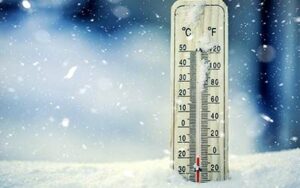Cold weather can affect a car's performance, ranging from reduced tire pressure to decreased battery power. Here are some ways in which cold weather can affect a car's performance:
- Reduced tire pressure: As the temperature drops, the air inside your tires contracts, causing the tire pressure to decrease. This can affect the car's handling and grip on the road, especially in wet or icy conditions. It is essential to check and adjust your tire pressure regularly during the winter months to ensure that it is at the proper level.
- Decreased battery power: Cold weather can drain a car's battery faster, as the engine requires more power to start in cold weather. This can be a problem if the battery is weak or the vehicle is not driven regularly. To help prevent battery issues, it is a good idea to have your battery tested before the winter season and to ensure it is adequately charged.
- Thicker oil: Cold weather can cause motor oil to thicken, making it harder to circulate through the engine. This can lead to reduced engine performance and potentially cause damage. To help prevent this, using motor oil with a lower viscosity (such as a "5W" oil) in the winter months is a good idea.
- Reduced fuel efficiency: Cold weather can also affect a car's fuel efficiency, as the engine has to work harder to maintain operating temperature. This can result in increased fuel consumption. To help improve fuel efficiency in cold weather, it is a good idea to ensure that your car's engine and tires are properly maintained and to drive at a steady speed to avoid rapid acceleration and braking.
By understanding how cold weather can affect a car's performance, drivers can take steps to prepare their vehicles for winter driving and ensure that they are running at their best.

